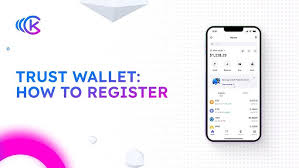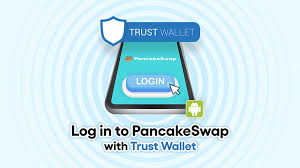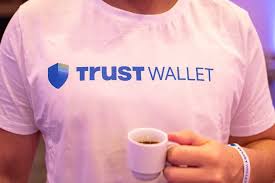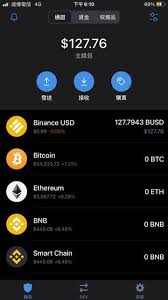
Yes, Trust Wallet is owned by Binance, which acquired it in 2018 to enhance its cryptocurrency ecosystem.
Trust Wallet’s Acquisition by Binance
When Did Binance Acquire Trust Wallet?
-
Acquisition Year: Binance acquired Trust Wallet in 2018, marking a significant step in its strategy to expand its ecosystem and enhance user experience.
-
Strategic Move: The acquisition allowed Binance to integrate Trust Wallet’s features with its own, providing users with a seamless platform for storing digital assets and interacting with decentralized applications.
What Does Binance’s Acquisition Mean for Trust Wallet?
-
Enhanced Features and Resources: With Binance’s backing, Trust Wallet gained access to better infrastructure, resources, and funding to develop new features, such as support for Binance Smart Chain (BSC) and other blockchain networks.
-
Wider Market Reach: The acquisition enabled Trust Wallet to tap into Binance’s large user base, expanding its reach globally and solidifying its position as a leading mobile cryptocurrency wallet.
-
Increased Security and Compliance: Binance’s expertise in security protocols and regulatory compliance helped strengthen Trust Wallet’s security features, making it safer for users to manage their assets.

How Binance Influences Trust Wallet’s Development
Integration with Binance Coin (BNB)
-
BNB Support: After Binance’s acquisition of Trust Wallet, the wallet added seamless support for Binance Coin (BNB), making it easier for users to manage their BNB assets directly within the app.
-
Binance Smart Chain (BSC): Trust Wallet’s integration with BSC allows users to interact with decentralized applications (DApps) on Binance Smart Chain, expanding the wallet’s utility beyond traditional asset storage.
Impact of Binance’s Infrastructure on Trust Wallet
-
Improved Security: Binance’s security infrastructure has significantly enhanced Trust Wallet’s protection mechanisms, such as two-factor authentication and encryption, ensuring users’ private keys and assets are secure.
-
Scalability: With Binance’s robust server architecture, Trust Wallet can handle a growing user base and an increasing number of transactions, ensuring a smooth experience for users around the world.
-
Faster Feature Development: Binance’s resources allow Trust Wallet to roll out new features and updates quickly, ensuring the wallet remains competitive in the rapidly evolving crypto space.

Trust Wallet’s Operations Under Binance Ownership
Does Binance Control Trust Wallet’s User Data?
-
Non-Custodial Nature: Trust Wallet is a non-custodial wallet, meaning that users retain full control over their private keys and data. Binance does not access or control this information.
-
Privacy Commitment: Binance respects Trust Wallet’s privacy policies, and while the wallet may collect minimal data for operational purposes, it ensures that users’ financial data remains private and secure.
-
User Data Handling: Any data collected by Trust Wallet is stored in a decentralized manner, not under Binance’s direct control, aligning with Trust Wallet’s privacy-first approach.
Trust Wallet’s Autonomy Within Binance’s Ecosystem
-
Independent Development: Despite being owned by Binance, Trust Wallet operates with a degree of autonomy, focusing on its mission to provide users with a secure, easy-to-use cryptocurrency wallet.
-
Decision-Making Process: Trust Wallet’s team continues to make decisions related to its development and features, with guidance from Binance but not complete oversight.
-
Ecosystem Integration: Trust Wallet integrates closely with Binance’s services (like Binance Smart Chain) but remains a separate entity, ensuring that it can serve users outside the Binance ecosystem as well.
Trust Wallet’s Role in the Binance Ecosystem
How Trust Wallet Supports Binance Smart Chain (BSC)
-
Seamless BSC Integration: Trust Wallet fully supports Binance Smart Chain (BSC), allowing users to store and manage BNB and other BSC-based assets like BEP-20 tokens.
-
Access to DApps: Through its integration with BSC, Trust Wallet enables users to interact with decentralized applications (DApps) built on the Binance Smart Chain, enhancing the wallet’s functionality for DeFi and NFT projects.
-
Transaction Speed and Low Fees: Trust Wallet leverages BSC’s fast and low-cost transactions, providing an optimal environment for users to transfer tokens and interact with the blockchain.
The Synergy Between Binance and Trust Wallet
-
Shared Ecosystem: Trust Wallet and Binance work together to provide a seamless experience for users, where assets on the Binance exchange can be easily transferred to Trust Wallet for secure storage.
-
Mutual Benefits: Trust Wallet benefits from Binance’s global presence and infrastructure, while Binance users benefit from Trust Wallet’s decentralized, secure, and user-friendly platform for managing their crypto assets.
-
Growth and Innovation: The close collaboration between Binance and Trust Wallet enables faster feature development, innovation in blockchain integration, and the expansion of services like staking and DeFi, strengthening both entities within the cryptocurrency ecosystem.

User Experience with Trust Wallet and Binance
Trust Wallet’s Features for Binance Users
-
Asset Transfer: Easy transfer of assets between Binance and Trust Wallet.
-
BSC Support: Seamless interaction with Binance Smart Chain (BSC) and BEP-20 tokens.
-
DeFi and DApps: Access to decentralized finance (DeFi) apps and DApps.
How Binance Customers Benefit from Trust Wallet
-
Full Control: Users retain control over their private keys.
-
Enhanced Security: Strong security features, including encryption and biometric authentication.
-
Binance Integration: Deep integration with Binance, offering token swaps, staking, and liquidity pools.

Trust Wallet’s Security Features After Binance Acquisition
How Binance Enhances Trust Wallet’s Security Measures
-
Advanced Security Protocols: Binance’s infrastructure strengthens Trust Wallet’s security by implementing industry-standard encryption and two-factor authentication (2FA).
-
Ongoing Security Updates: Binance’s resources ensure continuous updates to Trust Wallet’s security features, protecting users from emerging threats in the crypto space.
-
Audits and Penetration Testing: Trust Wallet benefits from Binance’s regular security audits and testing, which identify and mitigate potential vulnerabilities.
The Role of Binance in Trust Wallet’s Privacy Practices
-
Privacy-Focused Design: Binance supports Trust Wallet’s privacy-first approach, ensuring that user data is minimally collected and remains decentralized.
-
Compliance with Regulations: Binance helps Trust Wallet adhere to global privacy and data protection regulations, offering users a secure environment.
-
No Data Retention: Trust Wallet’s non-custodial model, supported by Binance, means that no user data is stored, enhancing user privacy.

Trust Wallet’s Future Under Binance Ownership
Potential Developments for Trust Wallet
-
Cross-Chain Functionality: Trust Wallet may expand its support for additional blockchains, allowing users to manage more cryptocurrencies across multiple networks.
-
Integration with New DeFi Projects: Expect further integration with emerging decentralized finance (DeFi) applications, enabling users to access more financial services directly from the wallet.
-
Enhanced User Experience: Trust Wallet will likely continue to improve its user interface and introduce new features for better accessibility and functionality, driven by user feedback.
How Binance’s Vision Shapes Trust Wallet’s Growth
-
Focus on Decentralization: Binance’s commitment to decentralization influences Trust Wallet to prioritize user control and security, promoting non-custodial features.
-
Expansion of the Binance Ecosystem: As Binance grows its services, Trust Wallet will likely continue to integrate with new Binance platforms, fostering deeper synergy within the Binance ecosystem.
-
Adoption of New Technologies: Binance’s innovation-driven approach will encourage Trust Wallet to adopt cutting-edge technologies, such as artificial intelligence and enhanced blockchain interoperability.
When did Binance acquire Trust Wallet?
Binance acquired Trust Wallet in 2018 to expand its ecosystem and enhance user experience in managing digital assets.
How does Binance influence Trust Wallet’s features?
Binance has helped integrate Binance Coin (BNB) and Binance Smart Chain (BSC) into Trust Wallet, expanding its capabilities.
Is Trust Wallet controlled by Binance?
While Binance owns Trust Wallet, the wallet operates with a level of autonomy, focusing on its non-custodial, decentralized model.
Leave a Reply